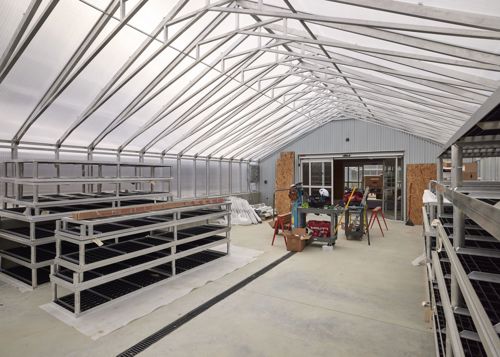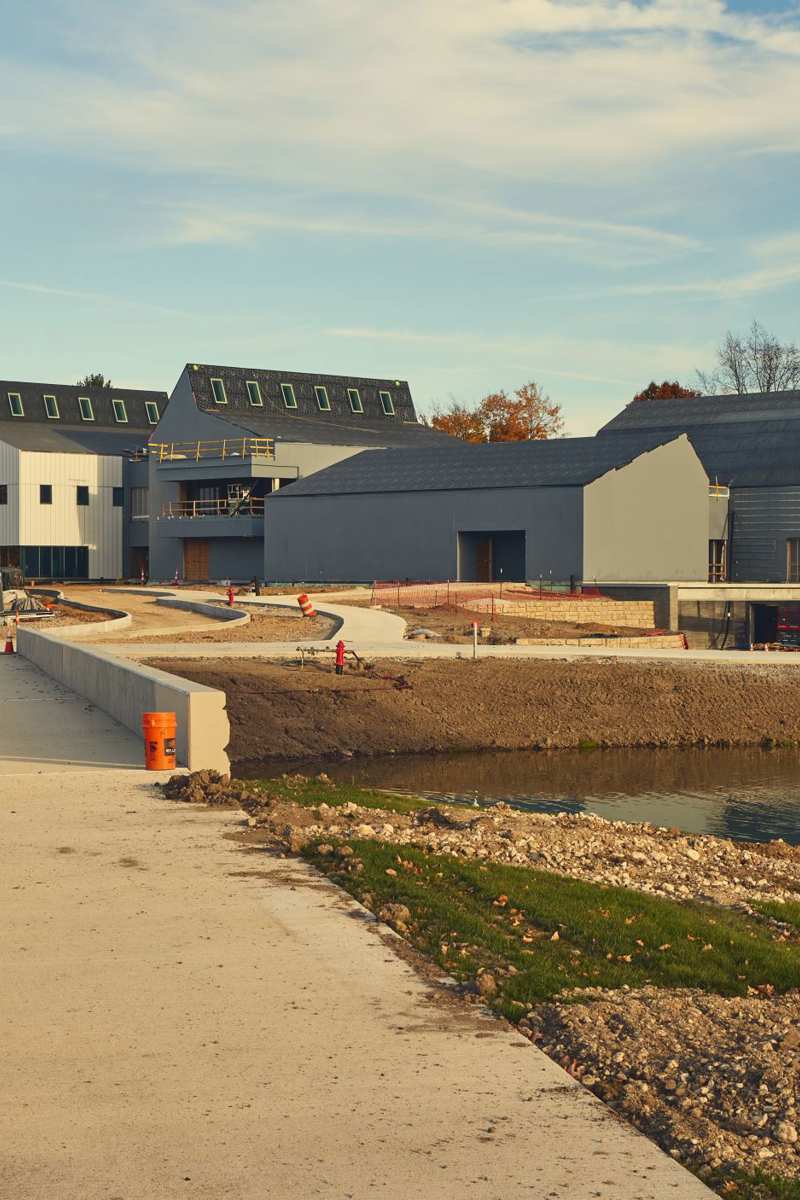Within the SEED Campus’s 35 acres dedicated to research, four greenhouses will present opportunities to control temperature, humidity, airflow, and other natural occurrences.
“We’ll be able to extend our research seasons, so we’ll be able to do more throughout the colder months,” says Ashley Kloes, Coordinator, Arboriculture and Plant Sciences. “We’ll have a more controlled environment, so even if it’s nice outside, we’ll be able to take rabbits and other external factors out of the equation, (and ensure) nothing is going to eat those plants.”
Construction of the four greenhouses – which are all connected to a shared head house – recently wrapped up. They will soon be hooked up to an irrigation system that will flow exclusively from SEED Campus ponds and wells – another feature that supports a commitment to sustainability within the campus.
Types of Research and Plants
Kloes says the greenhouses will mostly be home to small potted plants used for short-term (three-to-four-month) research projects. She envisions studies that examine pests, product testing, soil, and more. In addition to the research, teaching specimens can also be housed long-term.
“We’ll be able to adjust the climate in each of them to an extent, so we’ll be able to do specific things,” she says. “The biggest reason to have those different greenhouses is to do different studies. So maybe one greenhouse will be doing something on some spider mites, and we’ll have something in another one that we don’t really want to cross-contaminate, so we’ll be able to separate that out and have as controlled of a system as you can when doing that kind of work.”

Serving Davey Employees and the Green Industry
Once the SEED Campus opens later this year, Kloes hopes the greenhouses will be able to support all of Davey’s service lines. The studies involving product testing will serve the industry as a whole.
“It’s going to be an exciting way to do some more research and to serve all of our service lines,” she says. “We’re all really excited to move into it.”



